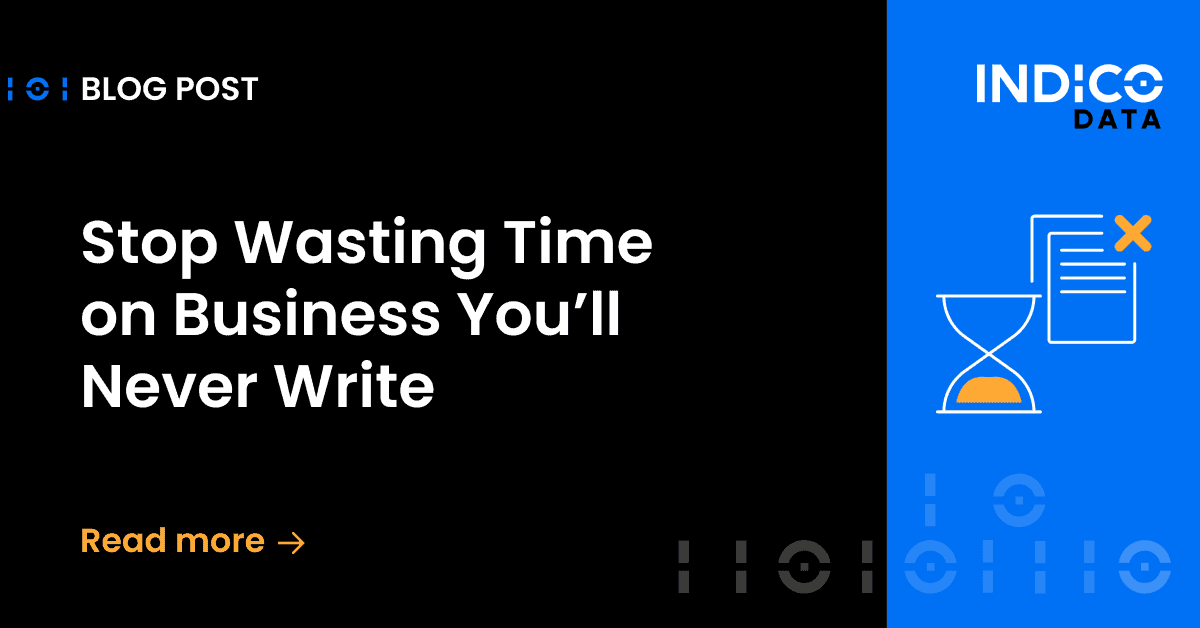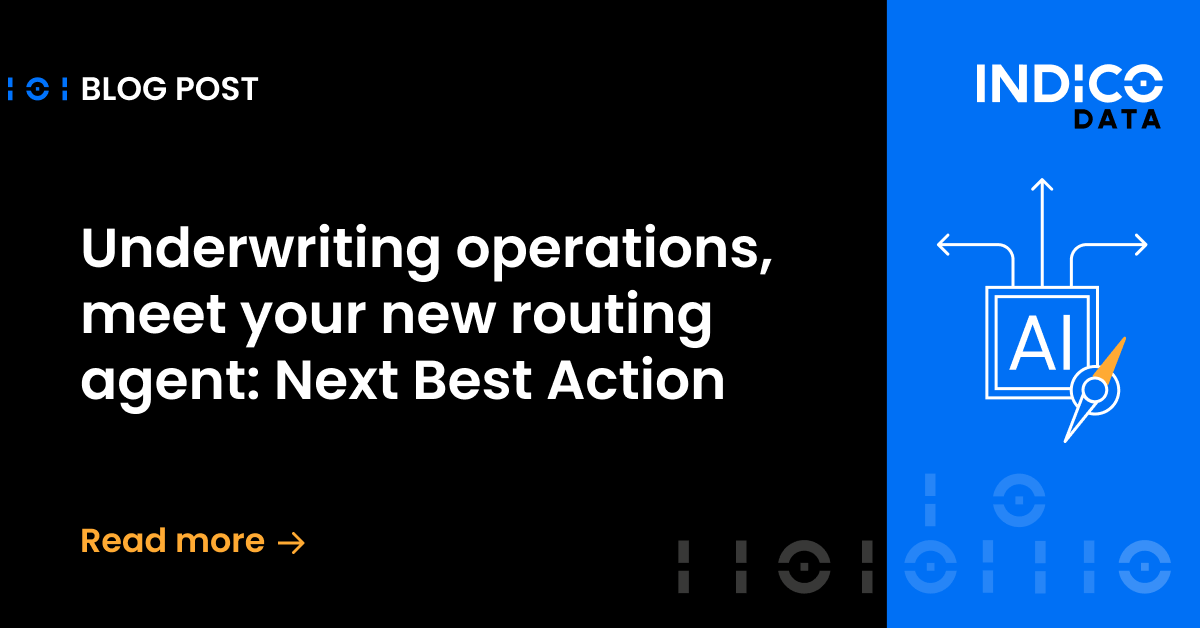Watch Christopher M. Wells, Ph. D., Indico VP of Research and Development, and Michelle Gouveia, VP at Sandbox Insurtech Ventures, in episode 27 of Unstructured Unlocked with Abhi Kothari, Practice Director at Everest Group.
Listen to the full podcast here: Unstructured Unlocked episode 27 with Abhi Kothari, Practice Director at Everest Group
In a recent episode of the Unstructured Unlocked podcast, co-hosts Michelle Gouveia and Chris Wells engaged in an insightful conversation with Abhishek Kothari, Practice Director at Everest Group. The trio delved into the transformative potential of generative AI and its implications for the insurance industry. Through this engaging discussion, listeners gained valuable insights into the promising landscape of generative AI, its applications in key insurance processes, and the strategic approach to its adoption.
Everest Group, a research advisory and analyst firm, standing at the forefront of evaluating service providers, enterprises, and deal enablers within the outsourcing ecosystem. Abhishek Kothari’s primary focus lies in the realm of insurance outsourcing, spanning the Property and Casualty (PNC) and Life and Annuities (LNA) sectors.
Crafting insights through reporting and rating
The conversation kicked off by shedding light on the meticulous process of creating reports. Kothari elucidated how Everest Group identifies report topics by closely tracking market developments and emerging trends. This process allows them to curate themes that warrant exploration, ensuring their audience is kept well-informed. Importantly, their nimble approach enables them to swiftly adapt to the industry’s rapidly evolving landscape. As Kothari aptly put it, “Last year was really about the metaverse. Now no one’s talking about the metaverse. Now it’s all about generative AI, right? So it’s all about changing so rapidly, we can’t just wait for a year to come out with that.”
Kothari brokedown Everest Group’s proprietary Peak rating system. This intricate ranking mechanism involves a series of rigorous steps, including information requests to service providers, client interactions, and comprehensive performance evaluations. This process culminates in industry rankings that categorize providers as leaders, major contenders, or aspirants. The meticulousness ensures that the rankings offer valuable insights for decision-makers within the industry.
Related content: Gartner report highlights role of AI and intelligent document processing in insurance
Harnessing the power of customer-centric research
Diving deep into navigating strategic engagements, Kothari highlighted the differentiated engagement levels between service providers and top market players from thematic viewpoints. These insights prove particularly valuable to procurement managers seeking to navigate the complex web of service provider capabilities, industry trends, and market shifts.
Kothari emphasized the pivotal role of Everest Group’s Outsourcing Excellence membership in cultivating a robust customer base of enterprises. This membership grants access to comprehensive research that equips enterprises with the insights necessary for well-informed decisions. Whether understanding market dynamics, evaluating service provider offerings, or learning from industry experiences, Everest Group’s research acts as a guiding compass for enterprises’ strategic outsourcing decisions.
Spotlight on “Digital Underwriting”
The conversation concluded with a spotlight on a specific report titled “Digital Underwriting: Building Operational Efficiencies Across the Underwriting Life Cycle.” This report takes a deep dive into the insurance domain, exploring avenues to enhance operational efficiency throughout the underwriting lifecycle. The report aligns seamlessly with the broader industry trend of embracing automation, workflow enhancements, and process efficiency.
One crucial pain point he highlighted is the challenges in data collection and validation, according to Kothari “ultimately what happens is that it also results in a poor customer experience on the other side of it.” This inefficiency stems from utilizing expensive resources for tasks that could be automated, negatively impacting both operational efficiency and customer satisfaction.
There are various paths of automation across different insurance sectors. He noted that straight-through processing has become a norm in personal lines, and while commercial lines are working toward similar goals that intent cannot always be realized. He also acknowledged the uniqueness of specialty lines, such as cyber insurance, where a lack of reliable data inhibits automation: “The problem is that the nature of these claims keeps on changing.” This highlights the importance of reliable data for successful implementation of automation technologies.
Kumar emphasized that personal lines are focusing on enhancing existing digital underwriting solutions, while commercial lines are, “still looking at more rudimentary solutions, which are available in the market.” In specialty lines, despite the potential, challenges lie in establishing the necessary groundwork: “They’re still about figuring out the fundamentals of the business.” This conversation underscored the delicate balance between automation and innovation, as well as the industry’s quest for partnerships and solutions that enhance efficiency and customer experience simultaneously.
Through Everest Group’s expert lens, this discussion unveiled how the industry is strategically harnessing generative AI to optimize underwriting and claims processes. The insights shared underscore the significance of data, effective stakeholder engagement, and the pivotal role generative AI is poised to play in shaping the future of insurance.
Find the transcript of the conversation here.
Check out the full Unstructured Unlocked podcast on your favorite platform, including:


